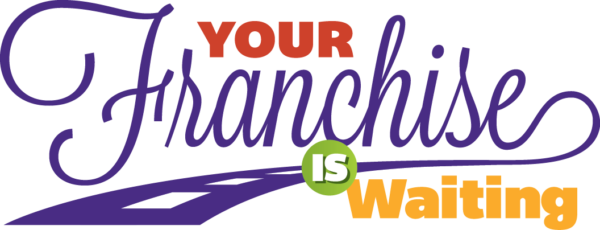There is nothing more exciting than working with clients who are in the early planning stages of choosing the right franchise for them. However, the financial commitment can seem daunting and it’s easy to become overwhelmed. The concerns of funding your franchise should not hold you back from starting this new and very rewarding chapter in your life. There are so many options out there when it comes to funding your franchise!
When I meet with someone interested in becoming a franchise owner, financing the purchase of the franchise is almost always a major consideration, and one of the first things we’ll discuss. Business ownership can be a path to financial security, but of course it requires you to spend before you will reap the rewards. Often LONG before you will reap the rewards!
Before you put down any money, one of the steps in the due diligence process is to reach out to fellow franchisees. They can tell you from personal experience what it was like, what the expenses were and how they decided to finance their business.
Savings
Once you’ve met with a franchisor, it’s time to look at all your options. The first one, and perhaps the most obvious option, is to look at your savings. If you have mutual funds, bonds and stock market investments, you can liquidate (taxes will be incurred) and apply towards your franchise. Many people feel more secure investing in their own abilities (which they can control) , rather than the unpredictability and lack of control inherent in the markets. And, if your securities are in excess of the amount of money you need – you can simply borrow against your securities. Interest rates are good, and you simply pay yourself back when you can. If your need for funding is half (or less than half) of the value of your securities, this is a good route to go.
Rollovers as Business Startups (ROBS)
Another option is to use your retirement funds. Companies like Tenet Financial, who we work closely with, allow you to invest your retirement funds into a franchise. This can be a very attractive way to go if you feel that your business will grow in value and that you may want to sell it in the future. That’s because the retirement account will then own the business, and when you sell, the bulk of the capital gains will be sheltered inside the account. Best of all, you won’t have to worry about early withdrawal penalties or taxes. And finally this option allows you to start your new business completely debt free – you don’t have to pay back the money you withdrew unless you want to replenish your retirement savings. A more thorough explanation of this program is here.
Using some of your savings to help fund your franchise is always ideal. When it comes to this option, one thing to keep in mind is to not put all you have saved towards your business. Never invest more than 75 percent of your cash reserves. If you have $100,000, invest $75,000. If you have $25,000, invest $18,750.”
Bank and credit union loans
If using your savings isn’t the best choice for you, another option is to get a loan from your bank or credit union.
The Wall Street Journal reports, “Commercial banks fund many franchises, so look to these lenders first. The single most important issue in landing bank financing is your credit rating. You will need to present a complete loan package including a personal financial statement, copies of personal tax returns for three years, and verification of the source of your down payment.” We have many sources to scour for finding loans, this is part of the advantage of working with a franchise consultant – that is part of the consulting process we provide.
Keep in mind that your franchise choice will have an influence on whether or not you will receive a loan. Franchises with hundreds of locations and successful track records are going to be most attractive to banks. An emerging brand that just started a year ago will be much more challenging to find financing for.
When meeting with a bank or credit union, be prepared to provide three years’ worth of tax returns and personal financial statements. You should also be prepared to be asked to put in your own money. They usually ask for between 20% – 30% of the amount needed so that you have “skin in the game”.
SBA Loans
Another great option is to get a loan backed by the U.S Small Business Administration (SBA). The SBA Express loan program has become so popular that they recently exceeded the budgetary limit for the fiscal year! But small business is an important driver for the economy, so as expected, Congress quickly allocated more funds to the program so it could continue running.
According to Entrepreneur, “In the 2011 fiscal year, the agency approved a record-setting $19.6 billion in 7(a) loans, the most common type of SBA funding . More than $1.5 billion of those were for franchise businesses, up from approximately $826 million the previous fiscal year.”
One reason SBA loans are so appealing is because they are partially guaranteed by the government, which makes them less of a risk to the lender. These loans provide short-term capital that cover your franchise fee, equipment, lease buildout and working capital. Generally speaking the total of the highest end of the range in item 7 of the franchise disclosure document is the total amount of loan you will be considered for. These loans carry different interest rates, but generally are 2.75% over prime and again, require you to inject anywhere from 20-30% of the loan in cash.
Unsecured Lines of Credit
No discussion of funding would be complete without talking about unsecured lines of (business) credit.
A non-traditional line of credit in the form of business credit cards are the easiest lines of credit a company can get. It provides the fast access to cash and payment flexibility associated with a traditional credit line but without all the drawbacks.
Qualifying for this type of revolving credit line is FICO® driven and doesn’t require the yearly reviews, excessive documentation and level of scrutiny that comes with a traditional credit line.
Some of the advantages of non-traditional business lines of credit are as follows:
1) Access to cash quickly – With unsecured business credit cards, you can utilize as much or as little credit from your line as you want to, anytime and anywhere
2) High credit limits – Business credit cards carry high credit limits, making it extremely convenient to finance larger business purchases. Many cards even offer 0% APR for the first 12 months.
2) Flexibility – With business credit cards you have flexible payment options compared to a fixed month-to-month payment that comes with a business loan. When you tap into your credit line, you have three options every month. You could pay the full amount due, pay at least a minimal portion of the balance or pay greater than the minimum amount due.
3) True separation – Business credit cards enable business owners to separate personal and business expenses while benefiting from business credit reporting. This makes it possible for business owners to establish the creditworthiness of the business itself.
4) Personal credit protection – small business credit cards that report solely to the business credit agencies allow business owners to protect their personal credit ratings while building their business credit.
Of course, these lines of credit have drawbacks as well: once the introductory interest rate is over, the rates jump and you can get into trouble quickly. It’s important to manage your debt responsibly, make large payments when you can, and get those credit card debts paid off first.
For this reason, we generally recommend using SBA loans as your primary source of funding, while then lining up unsecured lines of credit as a supplemental form of “insurance” so you can be well capitalized for those first few months when cash flow will be minimal.

